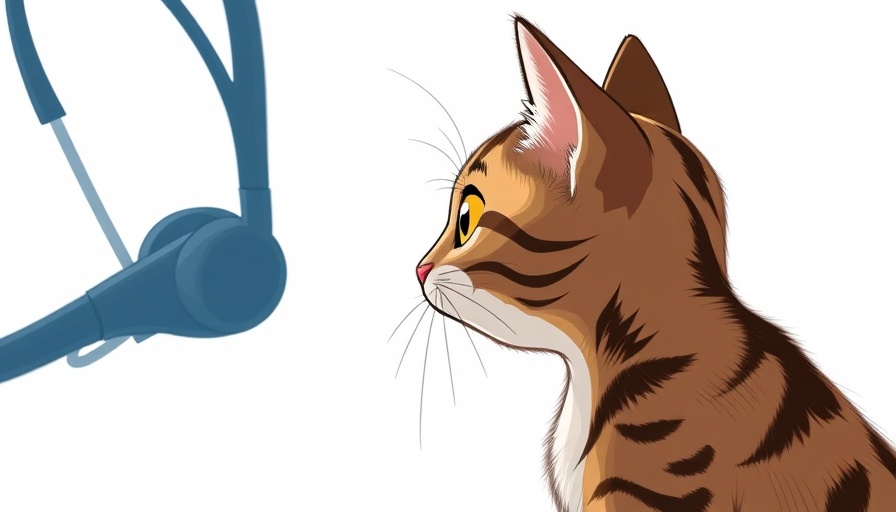
Understanding Hyperthyroidism in Cats: A Serious Health Concern
Hyperthyroidism is one of the most common health issues affecting middle-aged and elderly cats. As pet parents, it is crucial to recognize its signs early.
The symptoms can range from increased appetite and unexpected weight loss to behavioral changes, such as increased anxiety and restlessness.
If untreated, hyperthyroidism can lead to severe health complications, but thankfully, it is easily detectable with proper awareness.
In The Essential Cat Owner's Guide to Hyperthyroidism and Treatment Options, we explore the critical health issue of hyperthyroidism in cats, shedding light on key insights that every pet parent should recognize.
Common Symptoms Your Cat Might Show
As mentioned, weight loss despite a healthy appetite is a significant indicator of hyperthyroidism in cats. Other signs include a dry, unkempt coat, increased thirst, more frequent urination, and gastrointestinal issues like vomiting or diarrhea.
Note that while these symptoms can signal hyperthyroidism, they can also overlap with conditions such as diabetes.
Therefore, it's essential to consult a veterinarian, especially if you notice changes in your cat's behavior or health.
Diagnosis and Why It's Important
Recognizing hyperthyroidism early increases the chances for successful treatment. Your vet will likely begin by examining your cat's neck for enlarged thyroid glands, a key indicator of this condition.
Blood tests to measure the T4 hormone levels are typically employed, and though the process may seem daunting, timely diagnostics can make a world of difference.
Monitoring also extends to kidney function post-treatment, as hyperthyroidism can mask pre-existing kidney issues.
Exploring Treatment Options for Cats
Pet parents often wonder about the best ways to treat hyperthyroidism. Fortunately, there are several options available:
Medication: Administering daily tablets or a transdermal gel provides a straightforward method for managing the condition. However, ensure consistency in giving your cat their medication, as missing doses can result in symptoms resurfacing.
Specialized Diet: Certain diets, like Hill's y/d, restrict iodine intake and effectively manage hormone production. However, this requires strict adherence to feeding regimens, which can be challenging in multi-cat households.
Radioactive Iodine Treatment: This curative procedure involves a single injection that targets and destroys overactive thyroid tissue. Though costly, it can lead to long-term health relief for your cat.
Surgery: In some cases, surgical removal of an affected gland could be considered, though it bears risks and is not always the best option due to potential complications.
Potential Risks and Consequences
Each treatment has its advantages and disadvantages. Medication requires lifelong commitment, while radioactive iodine can be more cost-effective over time despite higher initial expenses. Surgery, though effective, carries risks that can affect your cat's overall health.
Monitoring for potential complications is vital. For example, after treatment for hyperthyroidism, kidney disease might become more apparent, which isn’t necessarily caused by the treatment but rather revealed through effective management of the original condition.
Your Cat's Overall Well-Being
As a pet owner, being proactive in your cat's healthcare journey is essential. Staying attuned to their behavior and any changes in their physical condition helps you catch ailments like hyperthyroidism early. Moreover, combining treatment with an understanding of your cat's emotional and psychological needs fosters deeper bonds and happier lives. Remember, a cat's attachment isn’t just about companionship; it’s a vital part of their well-being.
Conclusion: Ensuring a Healthy Life for Your Cat
For every pet owner, especially those in Sacramento, understanding conditions like hyperthyroidism can lead to quick actions that protect and enhance the life of their feline friends. With the right treatment and love, your cat can live a thriving, happy life, allowing you both to enjoy many cherished moments together.
Share this knowledge with other cat owners to help improve the lives of our furry companions, and consider returning for insights on other pet health issues as we continue to explore the dynamic bond between you and your pets.
 Add Row
Add Row  Add
Add 





 Add Row
Add Row  Add
Add
Write A Comment